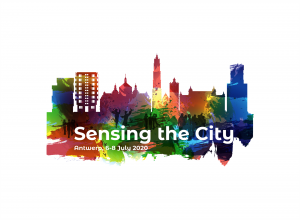[et_pb_section bb_built=”1″ admin_label=”section”][et_pb_row admin_label=”row”][et_pb_column type=”4_4″][et_pb_text admin_label=”Text” background_layout=”light” text_orientation=”left” use_border_color=”off” border_color=”#ffffff” border_style=”solid”]
 Marta Cordini, Carolina Pacchi e Andrea Parma organizzano una sessione su “Geographies of school segregation: comparing household choices and strategies” all’edizione 2021 della conferenza di RC21.
Marta Cordini, Carolina Pacchi e Andrea Parma organizzano una sessione su “Geographies of school segregation: comparing household choices and strategies” all’edizione 2021 della conferenza di RC21.
La sessione era originariamente prevista per la conferenza del 2020, cancellata causa COVID. Pertanto, la call for papers è stata riaperta per nuovi paper da aggiungere a quelli già selezionati per il 2020. La nuova fase di presentazione degli abstract si chiuderà il 4 dicembre.
Per maggiori informazioni sulle modalità di presentazione delle proposte si prega di consultare il sito della conferenza.
La sessione si focalizza sulle scelte scolastiche da parte delle famiglie e come contribuiscono ad incrementare fenomeni di segregazione. Di seguito il testo completo della call:
Segregation is not only an indicator of social inequality, but also one of its causes. The notion of segregation, then, refers to dynamics of exclusion that go beyond the concept of spatial distance to include a broader idea of social inequality. School segregation, in particular, reinforces the disparities and exacerbates the social reproduction of disadvantage. Children coming from families with low economic, cultural and human capitals are the first victims of this dynamic of exclusion. School segregation is the result of the combination of patterns of population distribution across the territory, institutional settings of education system and households’ choice.
While there is an open debate about the possible benefits or shortcomings of free choice at system level, literature has especially shown the relevance of households’ choice in contributing to educational inequalities and in shaping the geography of school segregation in urban contexts. Not only the choice itself counts, but also strategies that families put in practice to achieve their objectives are relevant in terms of the outcomes in school intake.
Scholars in general agree in considering school choice as a middle-class privilege. This group carries out a recognized strategic behaviour when their children education is on the table. Middle class parents are considered “active choosers”, since they mobilize their social and cultural capital to reproduce their social and economic status through education. Lower-classes are instead defined as “disconnected users” or “low interveners”, not having a strategic relation with the educational system. Individual and family choices then result in creating or re-enforcing patterns of school segregation or concentration of certain groups that goes beyond the territorial distribution at residential level.
While we can find some parallels among middle class choices across countries, strategies can be differently shaped according to the local and national institutional settings, the specific configurations of the housing market and the meaning associated to ethnicity, class and education. In other words, household agency takes different form in relation to the set of opportunities and constraints within which the choosers act.
The present panel welcomes contributions addressing the topic of educational inequality, and more specifically of school segregation, as an outcome of household choices and strategies. Papers are expected to answer one or more of the following questions in relation to the territorial impact of households’ choice:
- Which are the priorities of households when they choose their children’s school? (distance, pedagogical offer, intake composition, learning standards…)
- What is the role of information? How do families get the information they are basing their choices on? (official information, word of mouth, open days, meetings…)
- How is the choice translated into a strategy? Which are the strategies households adopt? Do they differ according to household typologies? How does the institutional structure of the education system contribute to shaping and selecting them?
- Is the choice for everybody? How do different endowments (in terms of economic, cognitive, cultural resources) shape parent strategies? As mentioned above, research has in fact already shown that not all the families have the same degree of choice, being the access to information and the capability of mobilizing human and social capital not equally distributed (active/passive choosers)
The panel welcomes both quantitative or qualitative papers, based on individual contexts or on comparative analysis across different cities.
[/et_pb_text][/et_pb_column][/et_pb_row][/et_pb_section]
